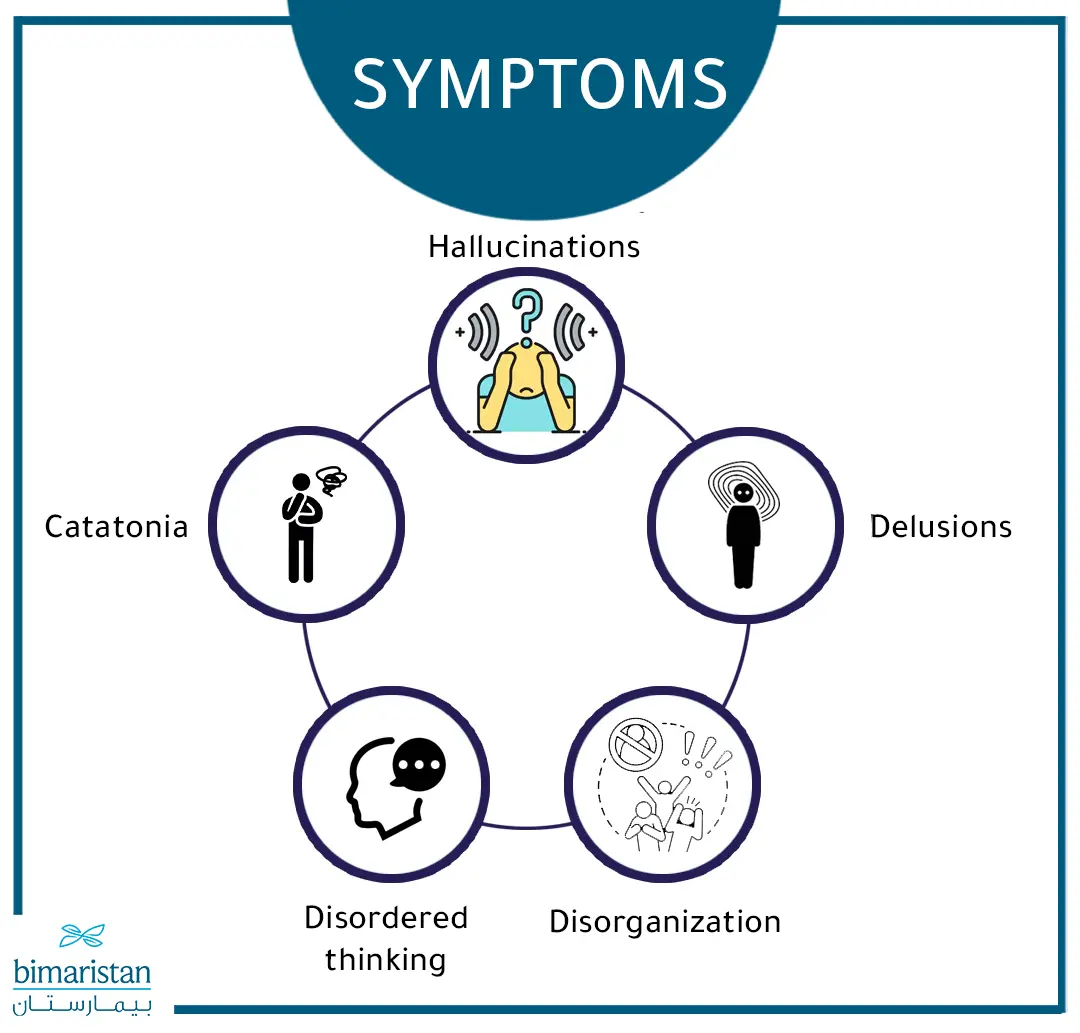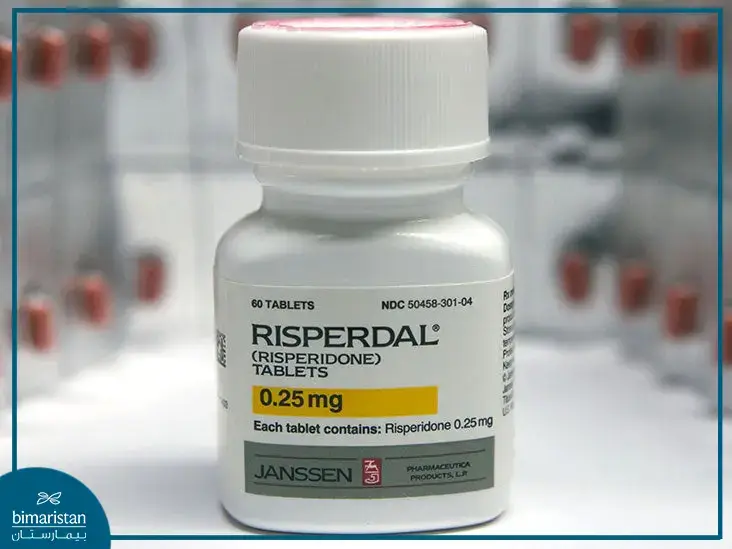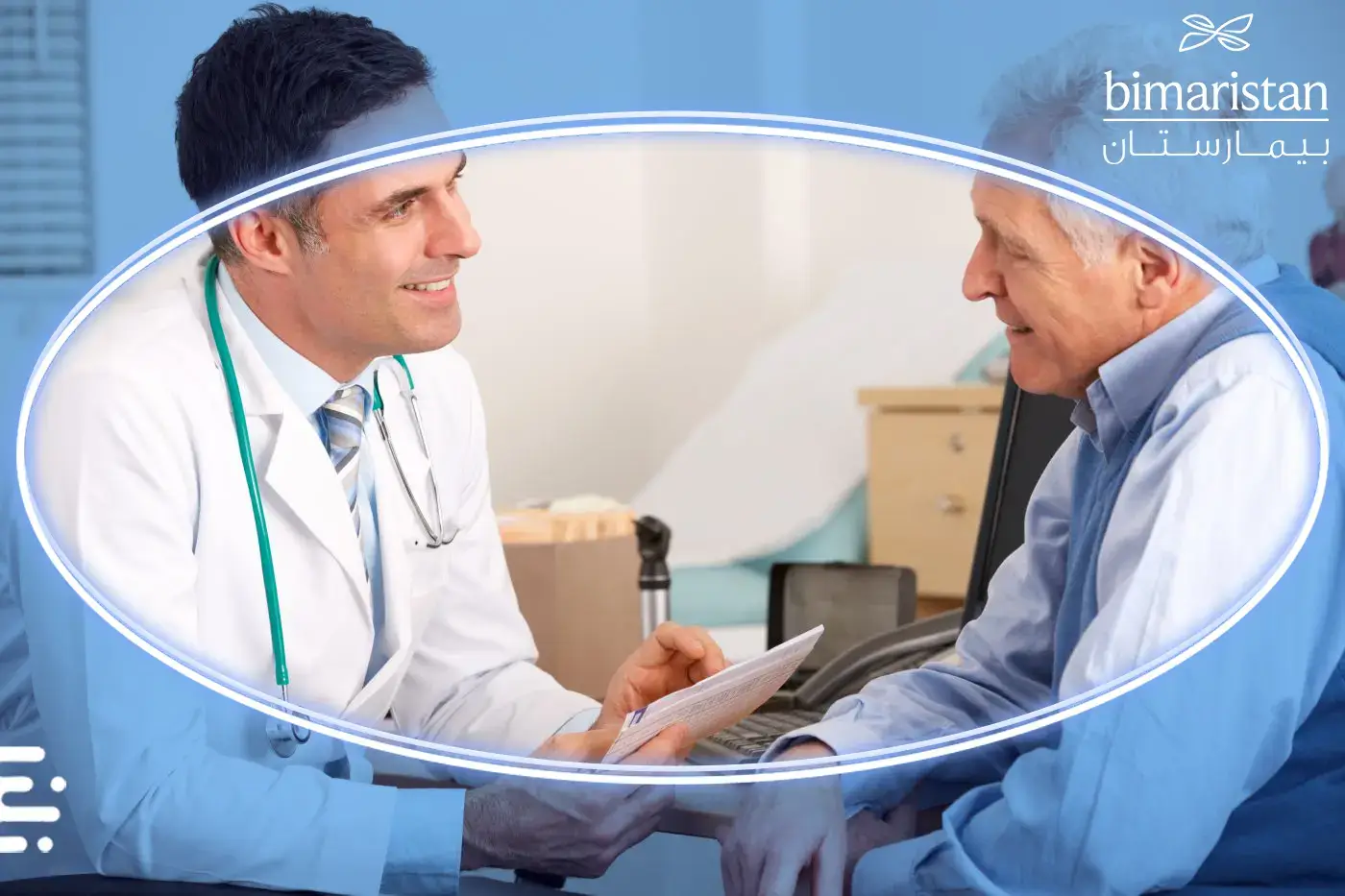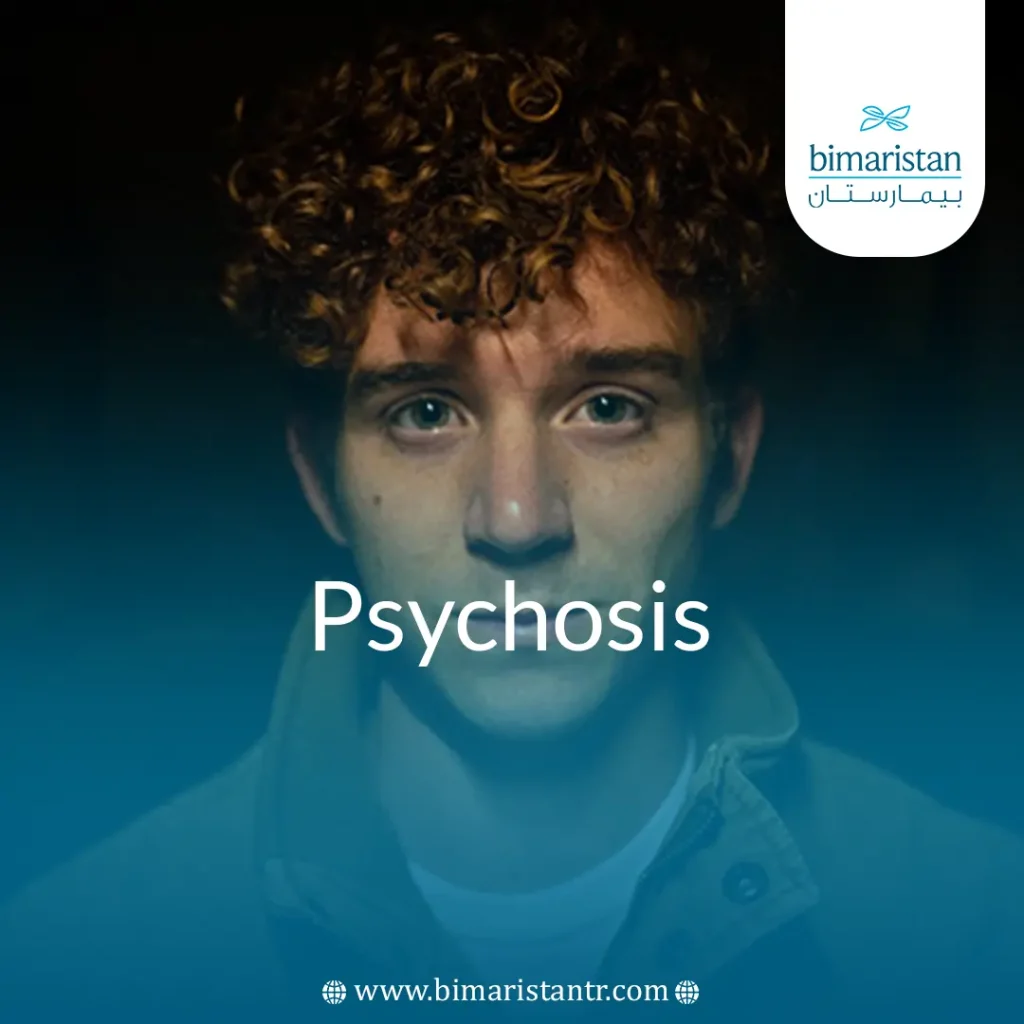Psychosis is considered one of the relatively common mental disorders in society, so it is essential to encourage patients to seek medical assistance and resort to appropriate psychological treatment.
Undoubtedly, early treatment of mental psychosis is of utmost importance, as studies have shown that cognitive-behavioral therapy in the early stages can significantly reduce the risks associated with the disorder. Therefore, raising awareness and educating people about this disorder is essential to reducing its complications. We must provide support and assistance to individuals who show symptoms. So, what are the signs and symptoms of psychosis, and how is it treated in Turkey? Follow along in this article.
Psychosis definition
Mental psychosis is a psychological disorder that can have a significant impact on the lives of those affected by it. It is characterized by a loss of contact with reality, confusion in thinking, and false beliefs unrelated to reality. Its symptoms are similar to those of other mental disorders, such as schizophrenia and borderline personality disorders.
Psychosis itself is not a disorder but a symptom of another disorder, namely dissociative personality disorder. It may be due to severe psychological stress or even as a result of the individual using certain types of drugs. Treating it requires comprehensive therapeutic intervention, including antipsychotic medication and psychological support.
Types of psychosis
There are several types of psychotic behavior, some of which may be due to other psychological or physical disorders, while others may be genetic or of unknown cause. The most important types include:
Brief psychotic disorder
Symptoms typically last between 1 and 30 days, and this type is often triggered by severe psychological stressors or social factors such as divorce or separation. It is the most common type among patients with personality disorders (borderline-histrionic).
Schizophreniform disorder
In this type, two or more psychotic disorder symptoms persist for 1-6 months. It differs from schizophrenia in that the duration of symptoms is shorter, and there may not necessarily be a disruption in professional and social functioning.
Schizoaffective disorder
This disorder is characterized by the combination of symptoms of schizophrenia with symptoms of a major mood disorder (either manic or depressive). It is a chronic disorder that lasts a lifetime and differs from schizophrenia in the presence of apparent affective (mood) symptoms.
Delusional psychosis disorder
Delusional disorder is more common in patients over 40 years of age. It is a condition in which patients hold false beliefs that are not based on reality. This disorder is characterized by being confined to delusions and does not affect other areas of the person’s life.
This disorder is more common among women and individuals from low socioeconomic backgrounds. Delusional symptoms develop in the patient if they have a close relationship with another person who has these symptoms.
Auditory and visual hallucinations psychosis
The presence of auditory and/or visual hallucinations affects the patient’s professional and social performance. The patient is convinced that these hallucinations are real and unquestionable, but they do not have any impairment in their thought process.
It is worth mentioning that psychosis can also occur as a result of other medical conditions, such as brain tumors or neurological disorders. Proper diagnosis and treatment by a mental health specialist are crucial for effective control of psychotic disorders.
Evolution of psychosis
Mental psychosis typically progresses through several stages that may vary from person to person. However, stages of psychosis development can be classified as follows:
- Early Stage: This stage precedes the onset of psychosis and is characterized by vague signs and symptoms that hint at the possibility of a psychotic disorder. The individual may feel anxious or withdrawn and notice changes in their behavior or sleep patterns.
- Acute Stage: In this stage, the individual exhibits apparent symptoms of psychosis, experiencing auditory or visual hallucinations. They may feel severe mental disturbance and a loss of connection with reality.
- Recovery Stage: The individual may start to recover from symptoms of psychosis following a psychotic episode. However, they may feel sadness or confusion due to their experience of this disorder, so they may need additional support and treatment to deal with the effects.
It is important to note that these stages may vary from person to person, and psychosis diagnosis may be made in a later stage without all the mentioned stages appearing. Individuals suspected of developing such behavior should seek medical assistance to evaluate their condition and provide appropriate treatment.
Psychosis causes
There is no single specific cause of this behavior, but there are multiple factors that may contribute to its onset, including:
- Genetic factors: There is a relationship between a family member having a psychotic behavior and an increased risk of developing it; for example, having a parent with mental psychosis during a certain period of their life increases the likelihood of the disorder occurring in their children.
- Chemical changes in the brain: There is a theory that changes in chemical levels in the brain, such as dopamine, may play a role in the onset of this behavior.
- Environmental factors: Some difficult experiences or severe psychological stresses may increase the risk of developing stress-induced psychosis, according to the latest recommendations of the American Psychiatric Association.
- Drug use: Some drugs, such as cannabis, may increase the risk of psychotic behavior, known as drug-induced psychosis.
- Other mental disorders: There may be what is called bipolar disorder or depressive psychosis, where symptoms of mental psychosis coexist with symptoms of the accompanying mental disorder.
Psychosis symptoms
Individuals with psychosis suffer from many symptoms that vary in severity from person to person. Here are some common symptoms:
- Hallucinations: Hallucinations are most commonly visual or auditory, where the patient can see or hear unreal things. However, they can also be olfactory, gustatory, or tactile (the patient feels physical contact with something imaginary).
- Delusions: False or illogical beliefs, such as believing that others are talking about or watching you.
- Difficulty concentrating and thinking logically, with the appearance of unrelated thoughts. The patient may talk about a specific topic and then completely switch to another topic.
- Loss of interest in things that were once enjoyable and inability to feel happiness.
- Social isolation and self-absorption.
- Difficulty sleeping or sleeping abnormally.
- Sudden mood swings, such as anger or depression.
- Difficulty performing daily tasks and inability to work effectively.

Diagnosing psychosis
Diagnosing this disorder requires a comprehensive evaluation of all symptoms and the person’s medical history, including the following:
- Symptom assessment: The individual suspected of having psychosis should speak to a psychiatrist about the symptoms they are experiencing, including hallucinations, delusions, disordered thinking, and others.
- Medical history: The individual should provide detailed information about their medical and family history, including psychiatric history and medications they are taking.
- Medical examinations: If symptoms suggesting a psychotic disorder appear in an individual, medical tests should be conducted to rule out other medical causes, such as poisoning or thyroid disorders.
- Psychological assessment: This may be performed by a psychiatrist to determine the type and severity of psychosis, often involving several sessions to assess psychotic symptoms.
- Psychological diagnosis: Based on symptoms and psychological assessment, the psychiatrist can diagnose psychosis and determine its type, such as schizophrenia or bipolar disorder.
Psychosis treatment in Turkey
The treatment of this disorder in Turkey includes a comprehensive approach that deals with symptoms by integrating drug and psychological therapies, which we will provide for you at the Hospital of Mental and Psychological Disorders. Specialized medical facilities in Turkey are distinguished by their significant advancement in psychiatric medicine due to their collaboration with experienced doctors in this field.
Optimism is warranted as a recent study conducted on a large number of psychotic patients indicated that the recovery rate from psychosis has tripled between 2013-2018, more than expected. However, indeed, you should see a psychiatrist and seek therapy early with the onset of any symptoms indicating mental psychosis to avoid any problems that may occur in the future and negatively impact psychosis treatment.
Medications for Psychosis
Medications can be used to treat mental psychosis patients, regulating the balance of chemicals in the brain. They also help control symptoms associated with mental psychosis, such as disordered thinking, hallucinations, and delusions. Different medications may be used depending on the type and severity of the disorder.
Many antipsychotic medications can be used in the treatment of mental psychosis. The medicines used depend on the type and severity of symptoms and the individual improvement of each person. Some examples of medications used include:
- Typical antipsychotics, Such as haloperidol and chlorpromazine, these medications reduce positive symptoms of psychosis, such as hallucinations, delusions, and thought disorders.
- Atypical antipsychotics, Such as risperidone and aripiprazole, medications work to improve negative symptoms of psychosis, such as mood swings and social isolation.

- Selective serotonin reuptake inhibitors (SSRIs), Such as fluoxetine and sertraline, these medications can be used to treat mood disorders accompanying psychosis.
- Norepinephrine reuptake inhibitors (NRIs), Such as Prozac and Effexor, these medications are used to improve anxiety and accompanying tension in psychosis.
Psychological treatment for psychosis
Psychological treatment for psychosis includes several methods and techniques aimed at improving the patient’s mental state and dealing with other symptoms. The most prominent methods used in treatment include:
- Cognitive-behavioral therapy: Aimed at changing negative and distorted thoughts and beliefs that lead to symptoms associated with psychotic disorder and promoting positive coping mechanisms.
- Social psychological therapy: Focuses on improving social skills, enhancing communication and social interaction for the patient, helping them adapt to the community, and alleviating psychosis symptoms.
- Psychosis supportive therapy: Involves supporting and encouraging the patient and providing assistance in dealing with challenges and difficulties arising from psychosis.
- Family therapy: This aims to enhance communication and understanding among family members and provide advice to the patient and their family on how to deal with mental psychosis.

These methods can be used separately or in combination with medication, and the implementation approaches vary according to the patient’s needs and personal circumstances. It is advisable to consult a psychiatrist to determine the appropriate approach and arrange therapy sessions.
Bimaristan Medical Center remains your first choice for treating all disorders and psychiatric behaviors you may suffer from in Turkey due to the availability of the latest technologies and therapeutic methods and our collaboration with specialized and experienced doctors in the field of psychiatry.
In conclusion, it is essential to understand that psychosis is not a personal flaw or a reflection of a weakness of character; instead, it is a treatable mental disorder. With appropriate psychological support, individuals with psychosis can achieve a normal and stable life, becoming active members of society and contributing to its construction rather than being a burden on their families and communities.
References:
- Psychotic Disorders, The New England Journal of Medicine, Jeffrey A. Lieberman, M.D., and Michael B. First, M.D.
- Psychosis, Mind.
- Psychosis and substance use, National Drug and Alcohol Research Centre.
